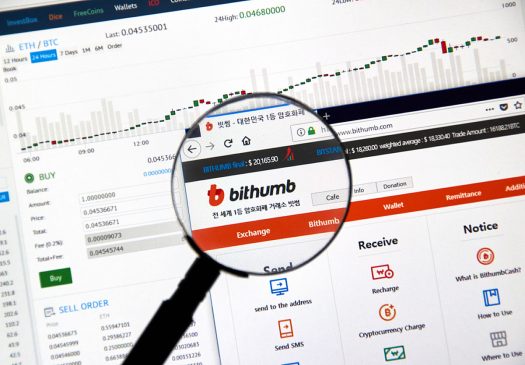Bithumb, South Korea’s second largest cryptocurrency exchange officially launched its Decentralised Exchange (DEX) on October 15 and marked the occasion with two events – free transaction fee event and an Airdrop event, the details of which have been published on the company website.
No Transaction fee period and Airdrop event
The Free Transaction Fee event will enable users to trade on the platform without paying any fees to the exchange. They will be required to pay only the Gas fee to the Ethereum Network. The event, which began on October 15, will continue for a month till November 15.
The company is also distributing approximately $100,000 (500 ETH) in an Airdrop event to celebrate the opening of the DEX. The coins will be distributed to the top 1000 traders who have traded on the platform for 2 weeks. To qualify for the free coins, the traders must have traded more than 1 ETH worth trade volume on the exchange.
The top trader will receive coins worth 50 ETH, the trader with the second rank will get coins worth 30 ETH, and the trader with the third rank is entitled to coins worth 15 ETH. The amount of the Airdrop giveaway will keep decreasing as the ranks get lower. The period of the event is from October 15 to October 30, and payments will start on November 1.
How is Bithumb’s DEX different from a centralized exchange?
The DEX has been developed using the R1 protocol in collaboration with ONEROOT, a global blockchain company. The DEX offers superior security as compared to centralized exchanges, as all of the DEX’s assets are stored in Smart Contracts and controlled independently by the users. Even in the event of a hack, the DEX’s assets are not at a risk of loss. The histories of all transactions are also recorded transparently on the blockchain, which eliminates the possibility of any tampering of data.
The matching and settlement of orders on the exchange are separated by the R1 protocol. Order matching is done off-chain, which allows for fast transaction speed. The DEX will also share order data and liquidity with other exchanges using the R1 protocol, which will empower it with better trading depth and increased asset liquidity.
In June this year, a $30 million hack had tarnished the name of the exchange temporarily. However, the exchange actively took damage control measures and recovered $16 million of the lost funds.
In July, the company also announced its plans of launching in Japan and Thailand. As per reports, Bithumb has applied with Japan’s Financial Services Agency (FSA) and Thailand’s Securities and Exchange Commission (SEC) for regulatory approval for operating in these countries.
Image from Shutterstock




